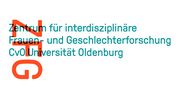Politics & Gender: A Transnational Research and Teaching Network
Politics & Gender: A Transnational Research and Teaching Network
Leitung: Dr. Lydia Potts
Laufzeit: März 2006 - Dezember 2007
Mittelgeber: DAAD
The project combines different areas of activity:
1. Research and Publications: Gender - Citizenship - Violence A major part of the project activities will be the discussion and constructive critique of research activities including the design of new studies to be carried out during the project term. Hereby the interdisciplinary composition of the partnership is an asset in many respects. Although the thematic focus of the partnership is primarily in political science and sociology and calls for a strong social science input, the overall concept is intercultural as well as interdisciplinary, incorporating approaches from cultural studies, social linguistics, anthropology, comparative history, gender studies etc.
2. Qualifying Young Scholars on an International Level A key issue of the project is to contribute to the qualification of young scholars, and it is closely linked to the area of research and publications. Students on the MA and PhD level will be directly involved in all project activities. The aim is to support students in producing high quality research including an international/intercultural perspective and reflecting the state of the art on methodological and theoretical level.
3. Curriculum Development: Citizenship and Gender / Gender and Violence The current curriculum situation in the four involved universities is very diverse, in all universities, however, it is an important question to what extent gender mainstreaming is implemented in curricula and how it can be promoted. The mutual curriculum developed by the partners will be applied in an international 'summer school' in 2007, which will serve as a test to what extent it will be possible to implement transnational courses or a sustainable German-Arab Gender Studies program.
Strengthening the Connection: Civil Society and Academia
All partner centers in the MENA region cooperate with civil society organizations, most professors are actively involved in NGOs. The transfers are mutual: both sides provide special expertise, at times the centers research is funded via these connections, but NGOs often also do quality research and are very important for dissemination of research results. This is a major asset for the project.

